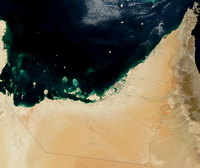As one of her final acts as U.S. secretary of state, Condoleeza Rice signed a nuclear cooperation agreement with the United Arab Emirates (U.A.E.) on Jan. 15, a deal touted by the Bush administration as a model for promoting peaceful nuclear energy while at the same time guarding against weapons proliferation. The Obama administration is still studying the accord before deciding whether to forward it to Congress for ratification into law. But the deal has won an unusual combination of support from both representatives of the U.S. nuclear power industry and select nonproliferation experts. Congressional reservations, however, remain. Persistent and serious concerns include trade monitoring lapses that allowed the A.Q. Khan network to use the U.A.E. as a conduit for its nuclear smuggling activities; questions regarding the effectiveness of the country's export control system, introduced only in 2007; and the extent of the U.A.E.'s efforts to combat money laundering and terrorist financing. As a result, a bipartisan coalition in the U.S. House of Representatives has introduced legislation that would set conditions before Congress could approve the agreement. Specifically, President Barack Obama would have to certify that the U.A.E. has not served as a transshipment point for banned goods and sensitive technologies to Iran for at least one year before the country could receive any U.S. nuclear technology. Iran's status as the Gulf nation's largest trading partner, as well as past transfers of dual-use technologies, is fueling concerns among American officials that the passage of the U.S.-U.A.E. nuclear cooperation agreement could spur nuclear proliferation in the already volatile Middle East.
Obstacles Remain for U.S.-U.A.E. Nuclear Agreement

